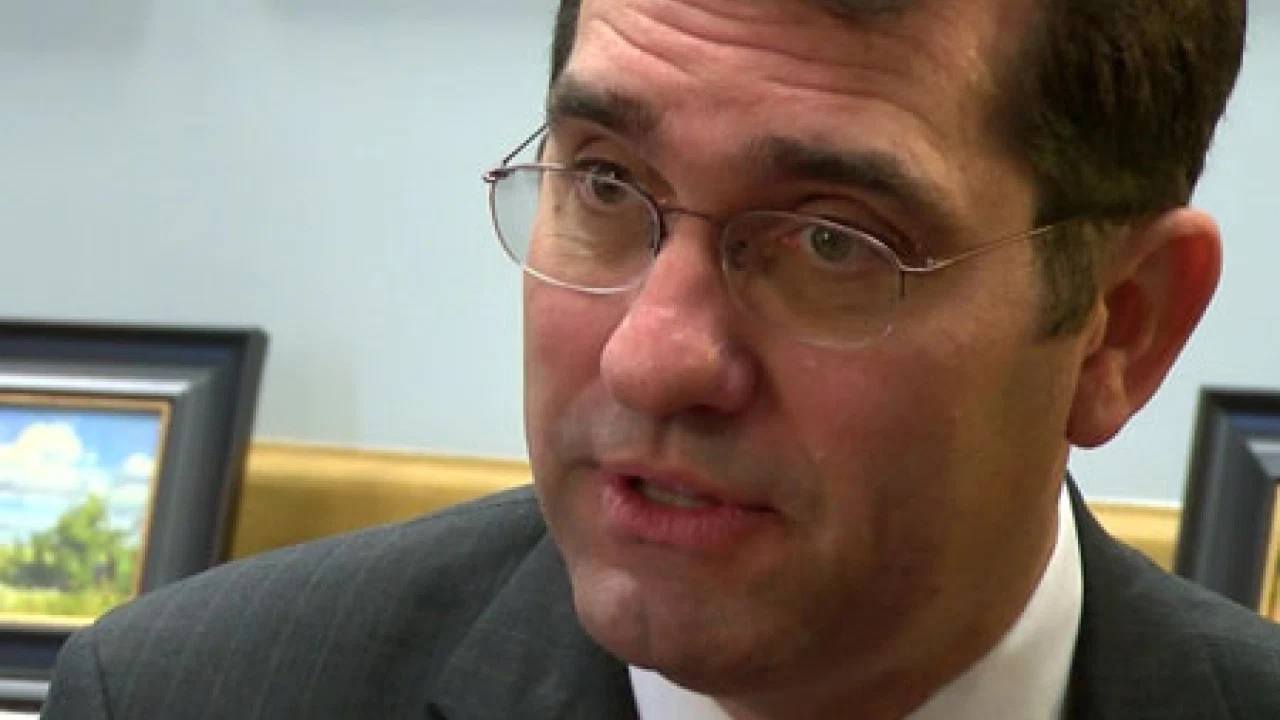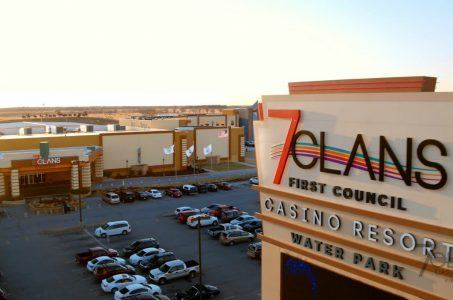Kansas Sues Interior Department Over Wynadotte Tribal Casino U-Turn
Posted on: August 11, 2020, 01:40h.
Last updated on: August 11, 2020, 02:23h.
Kansas Attorney General Derek Schmidt is suing the federal government for backing an Oklahoma-based tribe’s casino project earmarked for land ten miles north of Wichita.

The Wyandotte Nation has historical ties to Kansas and has for years been trying to build a casino in Park City on land it purchased there back in 1992.
The casino would be located just south of the shuttered Kansas Coliseum and Greyhound Park racetrack, close to the doomed theme park Wild West World, which declared bankruptcy in 2007, two months after it opened.
In May, the US Interior Department agreed to take the land into trust for the tribe, essentially greenlighting a casino that Kansas has long argued would violate state law.
This year’s DOI decision reversed a 2014 ruling rejecting the Wyandotte’s trust application, and the U-turn completely blindsided state officials. According to Schmidt, the first he knew about the decision was when he saw it in news reports.
Long-Running Legal Battle
In a lawsuit filed in the US District Court of Kansas, Schmidt wants a federal judge to set the decision aside and to urge the DOI to reconsider.
[N]o notice of any kind was provided to Kansas or any of the other plaintiffs despite their significant participation in the administrative proceedings and litigation involving the proposed Park City trust acquisition between September 2010, and July 2014,” the lawsuit states.
This is the latest twist in the long-running legal spat between the Wyandotte Nation, the State of Kansas, and the DOI. In 2014, the tribe’s application was turned down because the DOI accepted the state’s argument that the tribe had improperly used a trust fund to purchase the Park City plot.
The Nation received the fund from Congress as part of the 1984 Indian Claims Commission Settlement Act to invest in its economic development. But the DOI concluded the Nation had comingled other tribal funds with money from the trust to buy the land for the casino, which the Nation denied.
This time around, the DOI has accepted the tribe’s accounting. It’s a decision Schmidt contests in detail in his lawsuit.
Schmidt also argues the state has “been deprived of its lawful right of consultation and approval” because it “was not consulted about the matter, nor was its approval sought or given for gaming to occur on the land in issue.”
Private Casinos Prohibited
There are four tribal casinos in Kansas, located on Native American reservations, and four “state-owned” casinos. These exist because the state constitution prohibits private companies from owning casinos.
But the speech marks are necessary because the casinos are, in fact, owned and operated by private companies, while the state claims ownership of the games themselves — literally, the cards, the dice, and the wheels — and takes a share of the profits.
A Wyandotte Nation casino at Park City would likely dent the revenues of one such operation, the Kansas Star, 25 miles away.
An economic analysis referenced in a 2011 federal court filing found that the state would lose $23 million or more in tax revenue if the Park City project were allowed to go ahead.
Related News Articles
Most Popular
Tropicana Las Vegas to be Imploded, Tentative Date Set
VEGAS MYTHS BUSTED: Golden Gate is the Oldest Casino in Vegas
Most Commented
-
End of the Line for Las Vegas Monorail
— April 5, 2024 — 90 Comments
















Last Comment ( 1 )
A casino at park city would assist the state in my opinion. Many people in this area drive across the line into Oklahoma to the casinos. I look forward to the same type of gaming at the Park City Casino as found in Oklahoma. I also think that the tribe has as much right to use the land they have for a casino. I do not think it would put the Mulvane area casino out of business. Many people like gaming. For instance, the casinos around the north side of Topeka are still in business and have operated for several years. I think the businesses around the Park City area would thrive from a casino in that vicinity. Job creations and entertainment may expand. If I remember the casino vote in Sedgwick county was very close when it was voted on years ago. Why block a casino that will more than likely bring jobs to the area. What ya thinking? In my opinion which I have many at my age this is Politics!